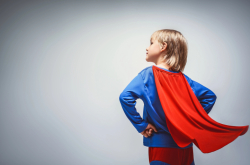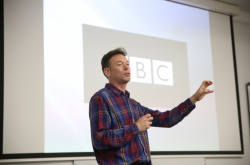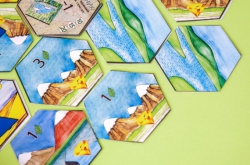This year, ITMO’s Center for Science Communication has launched Scientific Petersburg, a new umbrella initiative supported by the Russian Ministry of Science and Higher Education that allows locals and tourists alike to observe St. Petersburg from a fresh perspective, be it science, medicine, or any other field that the city isn’t commonly associated with.
“We’ve picked various locations and fields to reach a wider audience and highlight that science is present in all aspects of our life: past, present, or future. We’re currently inviting visitors and locals to take part in our popsci quizzes, quests, a citizen science project, as well as medical and literary tours. That’s why the comeback of our Noble Talks to New Holland Island – a hotbed of popular science events – feels symbolic,” says Yulia Volzhina, a marketing specialist at ITMO’s Center for Science Communication and a project executive.

Daria Denisova and Yulia Volzhina. Photo by Shamil Troyanovsky / Megabyte Media
The lecture series began concurrently with the Nobel Week, which takes place in early October and features announcements of Nobel Prize winners who have demonstrated remarkable contributions to medicine, physics, chemistry, literature, economics, and peace. However, the Center for Science Communication chose to expand the event's scope and not focus on the 2024 prize laureates, but rather plan out talks by varied experts till the end of the academic year in a looser format. Therefore, the event was called Noble Talks. The idea of introducing this year’s Nobel awards into the program was proposed by Dmitry Karlovets, a senior researcher at ITMO’s Faculty of Physics.
“The Nobel prizes in physics and chemistry were granted for advances in AI and machine learning. On the one hand, the decision appears odd, but on the other – it demonstrates that the boundaries between fields are blurring. We embrace the concept of interdisciplinarity and invite researchers from different, oftentimes opposite, fields to cooperate. They not only make what is happening today, but also make predictions about the future. Thus, for instance, in our talk on astrophysics, we attempt to address the humanity and social responsibility of scientists; and in the lecture on the Ig Nobel Prize, we tried to find out if physicists have a distinct sense of humor and whether it helps them come up with brilliant ideas,” explains Tanya Melenteva, the editor-in-chief at ITMO’s Center for Science Communication.
Over 500 people have already attended Noble Talks at New Holland Island so far. During the first talk, Alexandr Malich, the director of Alexandrinsky Theatre, and Dmitry Karlovets, a senior researcher at ITMO’s Faculty of Physics, spoke about the impact of breakthroughs on art and science; the second event featured a talk about how discoveries change the world of explorers by Dmitry Glazov, a senior researcher at ITMO’s Faculty of Physics, and Nadezhda Kazarinova, a sociologist and an associate professor at St. Petersburg Electrotechnical University ETU “LETI.”
Upcoming talks will run on Tuesday and Friday at New Holland Island. You can register here. All events are free and conducted in Russian.
-
October 15 – Easter Eggs in Science: Insights and Memes for Progress by Andrey Sebrant, the strategic marketing director at Yandex, and Yakov Somov, a co-founder of Lectorium and a methodologist at St. Petersburg Lyceum No. 239;
-
October 18 – Live Long: How Discoveries Help to Look at Diseases Differently by Evgeniya Sokolova, an endocrinologist, the head of the Fomin Clinic in St. Petersburg, and the head of the Public Health Science Master’s program at ITMO University, and Olga Zhogoleva, an allergist and the head of Everyday Clinic;
-
October 22 – Academic Freedom and Digital Happiness: Decision-Making in the Age of AI by Daria Kozlova, ITMO's First Vice Rector and the director for education at Yandex, and Vasily Klucharev, a professor, Russia’s first DSc in cognitive science, and a senior researcher at HSE University's Institute for Cognitive Neuroscience.
In November, the center’s team will return to New Holland Island with a new lecture on chemistry. The series of events will continue until May 2025.
“The Scientific Petersburg project is our experimental ground. Apart from the lectures, we also want to offer other experimental formats, such as quizzes, open quests, tours, and webinars. There will be not only our renowned scientists, but also Master's students and experts from other fields. We intend to expand the geography of our popular science events in the future; we’ve already received several proposals from major St. Petersburg institutions,” noted Daria Denisova, the project’s leader and the head of ITMO’s Center for Science Communication.
The Center for Science Communication holds popular science events for both student and city communities. Its team organized a science communication school for PhD students and scientists, and it has collaborated with the public space VOKZAL 1853 to deliver lectures on medicine, technology, and science (from infochemistry to astrophysics), which have been even dubbed into Russian sign language.

A sign language interpreter at the lecture by ITMO and VOKZAL 1853. Photo by Daria Smirnova / Megabyte Media








